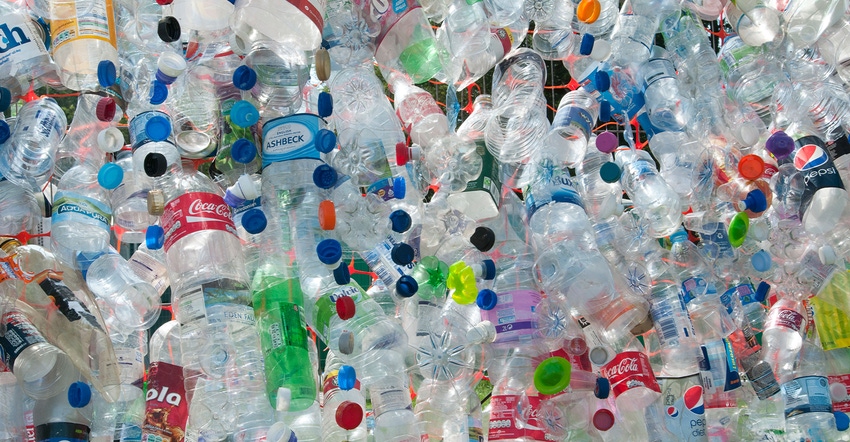Study Peeks Into Consumers’ Bottle Deposit Redemption Habits
A new TOMRA report exploring what consumers expect from bottle deposit programs found people want fast, reliable, easy service and, if they get it, they’re likely to keep dropping off their empty bottles at the same store and spend the cash they redeem on groceries there. So, it seems recycling loyalty fosters shopping loyalty.

A new TOMRA report exploring what consumers expect from bottle deposit programs found people want fast, reliable, easy service and, if they get it, they’re likely to keep dropping off their empty bottles at the same store and spend the cash they redeem on groceries there. So, it seems recycling loyalty fosters shopping loyalty.
“That’s because consumers view the redemption experience as part of the retailers’ offering. It’s tied with their brand experience,” says Mike Noel, public affairs director, TOMRA. The Norwegian-based company manufactures and supplies reverse vending machines, which allow consumers to return their empty drink bottles and cans for recycling and get back the deposits they left when they purchased them.
For brick-and-mortar stores, a well-oiled takeback system could be one way to stay competitive as online grocery shopping models gain more ground.
In general, people want to bring back and cash in on their empty drink containers. And they’re rounding them up and dropping them off in mega volumes, at least in Europe where the study took place. An average of 93 percent of respondents returned at least 90 percent of their containers; 66 percent said they wish they could bring back more types.
The study surveyed 7,000 consumers in seven European countries with return-to-retail deposit return systems.
Here’s what they care about most:
No machine downtime
Easy-to-use reverse vending machines
Ability to return all container types to one machine
Ability to scan quickly
Staff readily available when problems arise
Besides meaning more cash for consumers and more brand loyalty for retailers, robust bottle deposit redemption systems can be one more avenue to chip away at a global problem.
“The challenge of plastic pollution and climate change are not going away, and we are seeing increased interest from state governments and somewhat at the federal level to pursue policy that substantially solves the problem,” Noel says.
Some jurisdictions have added bottle deposit bills to their toolbox; others are working to expand existing programs.
In the U.S. 10 states have adopted these policies. And in 2023 alone, legislation was introduced to establish new bottle bills in six more: Illinois, Maryland, Minnesota, Rhode Island, Texas, and Washington (though Texas’ bill is tabled).
Add to the movement that bottle redemption proponents introduced 22 modernization/expansion bills in states that already have legislation. The amendments look for instance to raise fees or to cover more beverage types.
In Europe about 13 countries have beverage container deposit-return systems, with at least eight more scheduled for implementation by 2026.
Diving deeper into how shoppers think and act, TOMRA found most of the survey participants return up to 30 containers, once or twice a month.
Interestingly, recycling a lot does not mean recycling often. Folks, age 30 and below, and high-volume recyclers (those who tote in at least 50 containers at a time) returned more containers per trip than the average, but they brought them in less frequently.
There is something to be said for the adage “Time is money.” If consumers had to wait in line to drop off their bottles, or if the machines were not working when they came in, 31 percent said they would go to another store.
“That’s important because we know 87 percent are prepared to spend [their redeemed deposit] in that store. This is revenue for retailers and brings traffic in their stores,” Noel says, adding people also like the speed afforded by technology. They are keen on the concept of multi-feed reverse vending machines where they can empty out all their beverage containers, regardless of type, in one swoop—especially the folks who bring in the biggest loads. And they like streamlined digital payout, with their deposit money going on their store loyalty card or app.
Meanwhile the movement continues to push for bottle bills. Despite resistance, particularly from many recyclers who say the model would cut into their curbside collection volumes, more states are starting to look at this other decades-old option.
In Europe the European Union’s (EU) single-use plastic directive set a goal to collect 90 percent of plastic beverage containers by 2030, compelling EU member states to think about how to reach that target, and most of them are aligning on deposit systems to do that, Noel says.
Recycling policy pushers have a mountain to climb. Globally, over 1.4 trillion drink containers are sold each year, and only about 2 percent of them get recycled in a closed loop.
“So we have a lot more work to do,” Noel says.
“Our part is to make sure the system works for everybody. And what we find works is making sure bottle redemption is a positive experience for consumers, and to provide choices.”
About the Author(s)
You May Also Like




